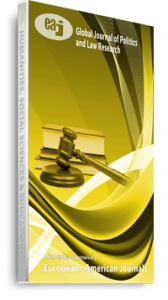The European Court of Human Rights’ ECHR 370 Resolution dated 17.12.2013, relating to the case of Mr. Dogu Perincek versus Switzerland, received much publicity worldwide. The attention of ‘scholars on international law’ has been focused on this case, particularly when in mid- March 2014 Switzerland applied to the Higher Court for revision of the first verdict. The year 1921, like every year between World War I and Adolf Hitler’s rise to power, was for Germany one of gloom, Political life had not yet recovered from the shock caused by the overthrow of a form of government deeply rooted in the history of the people. The newly empowered Reichstag was prey to wild party strife, which made the formation of a stable government difficult. The trial of the murder of Talat Pasha proved to be a most shameful comedy, because the killer Tehlarian was found innocent whilst the victim Talat Pasha was found guilty of killing Armenians previously in Turkey. The German Judges gave in to the Armenian and Victor’s pressures. Liman Von Sanders and the German Protestant pastor Dr. Johannes Lepsius deposed in the court as experts. Liman Von Sanders did mentioned anything about the German Ambassador of the era and also him being the Commander in Chief of the Ottoman Army. He did not testify against Talaat but he also did not tell the truth in full extend but a quarter of it only. Accordingly his testimony was against rather than pro. Although an appeal notice was sent to Bronsart Von Shellendorf, he wasn’t called as a witness to the court. After the final verdict of the court, he published an article in a newspaper as a reaction to the court’s verdict. This paper, based on information excerpted from the non Turkish or non Ottoman formal documents and/or official releases, tries the bring into life what happened actually during the trial and the effect of the heavy and irresistible pressures on the German judges.
Keywords: Armenian, Berlin, Murder, Ottoman, Talaat Pasha, Tehlarian

